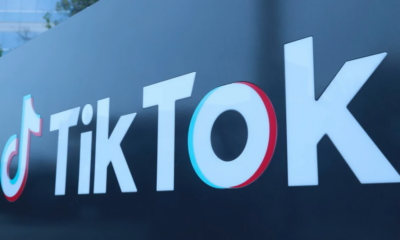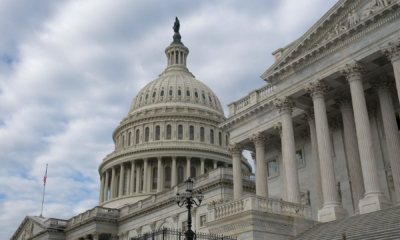NEWS
Google Antitrust Trial Over Search Monopoly Set to Begin Tuesday
Published
8 months agoon

Courtesy of google/Instagram
Google’s trial on federal antitrust charges begins Tuesday, marking the biggest monopoly trial in the tech sector since the Department of Justice took on Microsoft more than 20 years ago.
The trial before U.S. District Judge Amit Mehta is focused on the claim that Google has a monopoly on the internet search market.
The lawsuit, first filed in 2020, alleges that Google maintains its dominant position in the search market by paying billions to be the default search engine or web browser on Apple’s iPhone. The suit also claims that bundling its search engine with its Android smartphone software unlawfully rigged the market.
According to the Justice Department, with Google commanding 90% of the search market, stifling competition and innovation, the quality of their search results has been allowed to suffer, including being outright manipulated to promote Google’s own products.
The tactics also allow Google and parent company Alphabet to profit on increasing ad space ad the top of search results.
“The Department of Justice Antitrust Division is about to tee off on Google for its allegedly anticompetitive efforts to make its search engine the default option across all devices. The irony is that more than 20 years ago, DOJ went after Microsoft with respect to its browser, which government victory paved the way for innovation by companies such as Google. Funny how the more things change, the more they stay the same,” said attorney and law lecturer Danny Karon, who is not involved in the case.
“Often, monopolists are better off monopolizing, getting rich, and paying fines than never monopolizing in the first place. Maintaining an illegal monopoly is a choice that involves not just the law and the facts but also greed, morality, and consequence. If after paying their lawyers and a verdict, a company still comes up on top, you’ll see one very happy defendant,” Karon said.
“It’s surprising it’s taken the government this long. When you own 80% of the search market, of course you are hitting the stage where you are a monopoly,” said Ted Jenkin, founder and CEO of Atlanta-based oXYGen Financial.
“What most consumers don’t realize is that the search data feeds every other part of Google’s business. When a user opens up a Chrome browser and types in a Google search, all of that data collected is now what’s called ‘first party data,’ meaning Google can legally use every single data point to inform all of its other products — phones, payment processors, advertising, and more,” said Morgan Gist MacDonald, founder and CEO of Paper Raven Books.
“If the DOJ rules that Google’s search is violating antitrust laws, it would be ominous for the entire Google ecosystem. Google search isn’t just one piece of Google, it’s integral to every other piece of Google,” MacDonald said.
The trial is potentially just the first for Google, as a separate antitrust lawsuit filed earlier this year alleges Google also has an unlawful monopoly on advertising technologies.
According to the complaint, Google controls the publisher ad server used by “nearly every major website publisher” to sell ads; the ad network tool that allows advertisers to buy ad placements; and the ad exchange that matches buyers and sellers of advertising, causing “great harm” to online publishers and advertisers.
TMX contributed to this article.
More Money + Investing
-


US Unemployment Claims Fall to Lowest Level Since January
-


TikTok Fined $368 Million By EU Regulators For Failing To…
-


Gates Foundation Invests Nearly $100 Million in AB InBev Despite…
-


McDonalds Says US Sales Are Up Despite Inflation
-


Oil prices are rising again, helped by weaker dollar
-


48,000 Mattresses Sold at Costco Under Recall for Reported Mold
-


Users Can Now Claim Fortnite Refunds As Part of FTC…
-


The economy barely grew in the previous quarter
-


Mortgage rates increase as housing affordability declines
-


Microsoft lays off 1,000 workers
-


Winning Powerball Ticket Sold In California Worth $2.04 Billion
-


Gas prices may soon drop below $4 per gallon, according…
